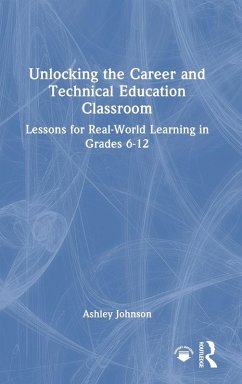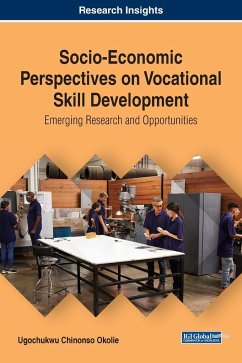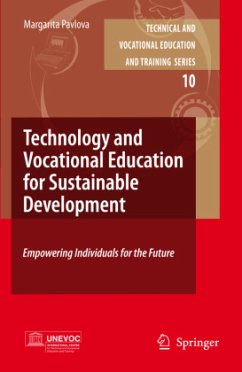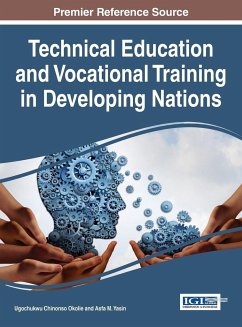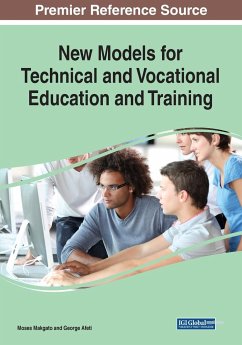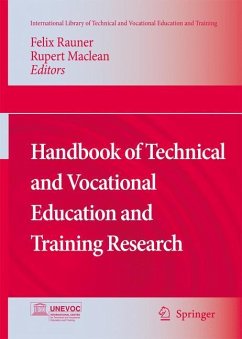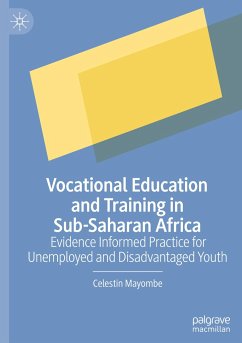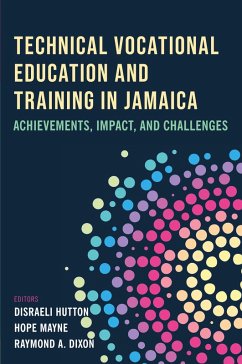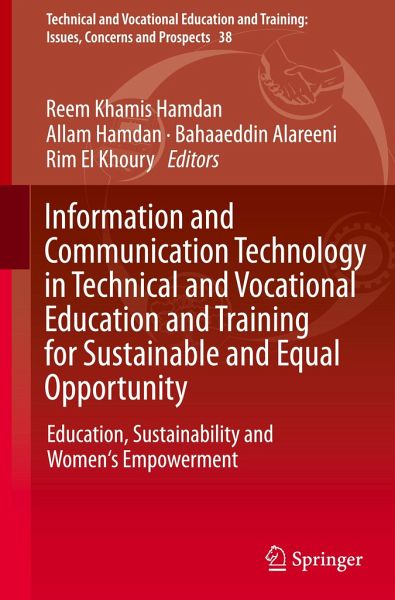
Information and Communication Technology in Technical and Vocational Education and Training for Sustainable and Equal Opportunity
Education, Sustainability and Women's Empowerment
Herausgegeben: Khamis Hamdan, Reem; Hamdan, Allam; Alareeni, Bahaaeddin; Khoury, Rim El

PAYBACK Punkte
75 °P sammeln!
This book provide an in-depth analysis of current development concerning ICTs with reference to vocational education and training. It presents best and innovative ICT-based solutions implemented in education and explores controversial topics such as challenges and opportunities. It discusses the role of ICT, vocational education and training in women empowerment. It also examines digital learning, vocational education and sustainable operations. Information and communication technologies have created new opportunities along with new challenges, putting profound and urgent implications on vocat...
This book provide an in-depth analysis of current development concerning ICTs with reference to vocational education and training. It presents best and innovative ICT-based solutions implemented in education and explores controversial topics such as challenges and opportunities. It discusses the role of ICT, vocational education and training in women empowerment. It also examines digital learning, vocational education and sustainable operations.
Information and communication technologies have created new opportunities along with new challenges, putting profound and urgent implications on vocational education and training (VET). Nowadays, we must think broadly and make the right choices about VET using innovation and digitalization to boost the quality of vocational education and training, enable the upskilling and reskilling of adults, and enhance the employability of learners. The potential and the impact of ICTs in vocational educationand training have yet to be fully exploited, leading to an emerging direction of research.
This book helps readers to understand the idea of business education and education governance in a digital age. It is of interest to practitioners, administrators, researchers, teachers, teacher educators and students.
Information and communication technologies have created new opportunities along with new challenges, putting profound and urgent implications on vocational education and training (VET). Nowadays, we must think broadly and make the right choices about VET using innovation and digitalization to boost the quality of vocational education and training, enable the upskilling and reskilling of adults, and enhance the employability of learners. The potential and the impact of ICTs in vocational educationand training have yet to be fully exploited, leading to an emerging direction of research.
This book helps readers to understand the idea of business education and education governance in a digital age. It is of interest to practitioners, administrators, researchers, teachers, teacher educators and students.





